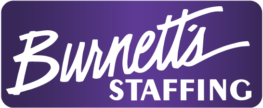It might be acceptable for Shakespeare to speak in platitudes, but you’re not Shakespeare (we don’t think so, anyway) and your resume isn’t a play or sonnet (although it would be interesting if it were). As such, it’s important to stay clear of overstated, overrated, and overused resume buzzwords. Avoiding common resume keywords and phrases will almost certainly help you stand out from other applicants, even if you don’t necessarily rival their credentials.
We’ve previously touched on a few words to leave off your resume if you want a job offer, but here, we’ve compiled a list of even more problematic resume buzzwords to avoid entirely. Deleting these resume keywords and phrases as well as clichés from your work history will help by effectively forcing you to put more of yourself—and your accomplishments—in front of hiring managers everywhere.
Team Player / People Person
That’s great, but what’s the alternative—a “lone wolf?” And even that’s not so bad. A great company is composed of “team players,” and it flourishes because of it. With that said, it’s expected—and implied—that by your application, you’re a “team player” as it is an inherent part of working with people and working in general. You don’t need to crowd up your resume with something so obvious, making this one of the most important resume buzzwords to avoid at all costs.
Results Driven / Goal Oriented
If you have results to show, showcase them. Results matter, anyone will tell you that—and if you’re so motivated by results, then you’ll have some to show off. Likewise, don’t say you’re “goal-oriented” because the hiring manager will question your successes if you have anything to show. In other words, if you are “goal-oriented,” list out the goals that you have successfully reached in bullet points.
Hard Worker
Your resume itself will hopefully prove this to be true. Additionally, no job applicant is going to say that they aren’t a “hard worker” because they know that no company is looking to hire a lethargic employee—so why waste 11 characters of precious space? Calling yourself a “hard worker” looks like you’re trying to convince yourself, not the hiring manager.
Outside the Box / Creative
When was the last time you’ve ever heard a creative person proclaim their creativity? Most likely, never—and if you have, you in all likelihood have a lingering, negative impression of that person. You might even think they’re pompous or pretentious, and you certainly wouldn’t want to work with someone like that. Instead of saying that you “think outside the box” or that you’re “creative,” put it on full display. Displaying this trait can be achieved in a variety of ways, and a good place to start is by briefly describing a time that you, without using the word, “creatively” resolved a particular problem. Further, presenting your resume in a way that is unique and different—yet still professional—is a great way to display innovation subtly; the way your resume looks will ultimately make a big difference.
Expert
Another no-no on our list of buzzwords to remove from your resume is “expert.” If you’re going to use this, then you better be prepared to back it up. If you happen to land an interview, you should be prepared to answer questions that challenge your expertise. We don’t recommend saying you’re an “expert” (even if you are) because it implies that you don’t think there’s more to learn, or that you have room for improvement, which might come off as arrogant and a little naïve, especially if the industry is constantly evolving. Instead, let your professional portfolio do the talking.
Track Record
Your resume is by definition a “track record.” A competent hiring manager will be able to tell right away if you “have a track record of success,” faster than you can spell out the phrase. You should, instead, provide much more useful information, such as an actual record of achievements or success.
Strategic Thinker
While there’s nothing wrong with being “strategic,” stating that you’re a “strategic thinker,” might be at odds with how detail-oriented you are. Rather than saying that you “think strategically,” we recommend portraying an action or activity that directly pertains to the job opening. If “strategy” is a fundamental component of the position (e.g., designing, planning, etc.) provide a clear example that shows the results of your “strategic thinking.”
Microsoft Word / Microsoft Office
Stating you have experience with Office programs such as Word, Excel, and PowerPoint was, historically, necessary—at the dawn of their invention. However, these programs have become such an integral part of society that your aptitude for them goes without saying, and they’re even easier to learn today than they were in the past. At this point, it’s universally understood and assumed that, as a functioning adult looking to work in the modern workforce, you have experience with Microsoft Word and at least some cursory knowledge of Microsoft Office in general. It is rather common and expected that it could even make a hiring manager think you ran out of ideas or your skill-set is limited. Alternatively, describe a skill more pertinent to the job. Just be sure to stay clear of using other tired resume keywords and phrases!
References Available Upon Request
There’s quite a bit to unpack here, but this makes our list of resume buzzwords to avoid for at least three reasons:
- It’s implied
- It takes up space
- It’s unnecessary
As it’s a part of their job, hiring managers, know that should they wish to interview you, “references [are] available upon request.” It’s safe to assume that it’s an obligatory part of the hiring process for any company. And you wouldn’t deny the request to provide references if they asked. Secondly, this resume buzzword is long—33 characters and four words long, in fact. Think of everything you can say in its place. Finally, as a resume keyword and phrase, “references available upon request” is simply no longer needed.
Now that you know some of the more notorious and overused resume buzzwords to avoid, it’s time to delete these common keywords and phrases, make the necessary changes, get your hopefully-still-single-page document out there, and start prepping for an interview.




